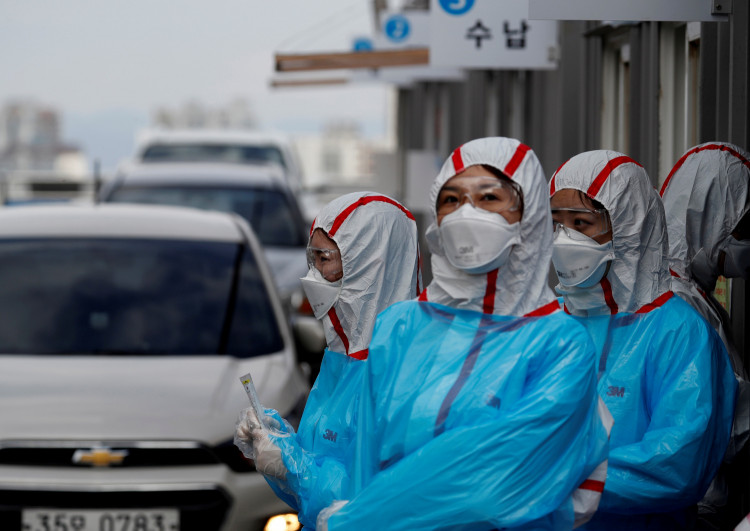The global coronavirus situation has affected many countries around the world and western nations are still reeling from the increasing a number of CoVID-19 cases in their areas. How does the United States differ from Asian countries that appear to have passed the peak of their coronavirus battles?
South Korea vs U.S. in Coronavirus Management
South Korea has a higher number of confirmed CoVID-19 cases than the U.S. However, experts noted that there is a difference between the two country's handling of the coronavirus situation.
According to Business Insider, while South Korea appears to have passed the peak of the coronavirus spreading in the country, the U.S. sees cases rise every day since the world's largest economy announced its first community-spreading incident.
The COVID Tracking Project revealed in its latest data as of Tuesday that the U.S. has only tested 47,000 people for potential coronavirus infection. The number is a far cry from South Korea's total number of tests completed at 274,504 as of Monday.
Health experts have been calling on countries affected with the CoVID-19 strain to ramp up widespread testing as it is helpful in delaying the virus' spreading trail if people who test positive are isolated immediately.
China's New Cases Continue to Decline
As of Tuesday, China recorded a total of 80,894 confirmed coronavirus cases and 3,237 deaths. The figures are far from what the U.S. has recorded so far but the number of new cases has been declining over the past few days.
According to CNBC, China reported 13 new cases and 11 new deaths as of Tuesday, marking another day of a CoVID-19 slowdown in the virus' origin country.
With new cases climbing around the world, China's cases now account for less than 50 percent of the global total CoVID-19 tally. Worldwide, there are now at least 184,976 people who contracted the disease.
Imported Cases Pass Local Transmitted Cases in China for 5th Day
For the fifth consecutive day, imported coronavirus cases in China passed the figures of local transmission, marking another turnaround of events since the CoVID-19 strain started spreading outside the country.
The NHC reported that of the 13 new cases confirmed on Tuesday, 12 are from travelers who recently went abroad, Reuters reported. Only one of the new cases was a locally transmitted infection in Wuhan, the city where the virus first appeared in December.
Health authorities noted that while imported cases are on the rise, local transmissions are still possible due to asymptomatic patients who maybe unaware that they are carriers of the novel virus.
WHO Urges Europe to Adopt China's Bold Measures
The World Health Organization (WHO) said on Tuesday that Europe can still manage the spread of the novel virus, citing how China implemented draconian yet seemingly effective measures to slow down the CoVID-19 strain's fast-spreading trail.
China was once the epicenter of the coronavirus outbreak as it was also, the origin country but Europe's Italy is fast-catching up, with almost 28,000 confirmed cases and 2,158 deaths.
Regional director for Europe at WHO, Hans Kluge said European countries should take the "boldest actions" in either completely containing or at least slowing down the spread of the coronavirus in the continent.
Aside from China, Kluge also included Singapore and South Korea - all Asian countries - in the list of nations that appear to have "really succeeded to contain and push back" the CoVID-19 strain.
Chinese Consumers Slowly Bring Life Back in Streets and Establishments
As proof of the apparent decline in coronavirus-spreading across China, consumers are slowly stepping out of their homes and getting back to life as usual, though not in the same intensity as hustling streets were before the CoVID-19 crisis.
Some restaurants and malls have opened doors, with some consumers stating that the country is getting back the life it lost last month, when China experienced the peak of the coronavirus situation.
Economic experts noted that getting consumer spending back on its feet is one of the key aspects of reducing fears about the global economy falling into a recession due to the coronavirus crisis.





